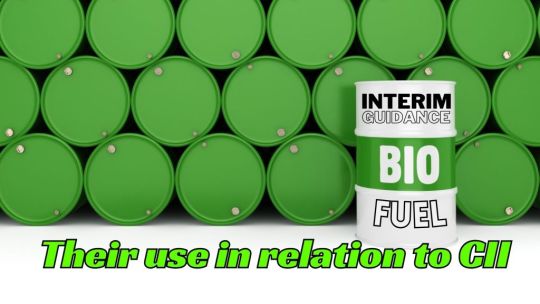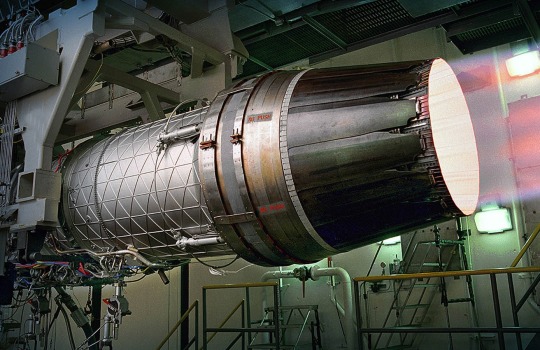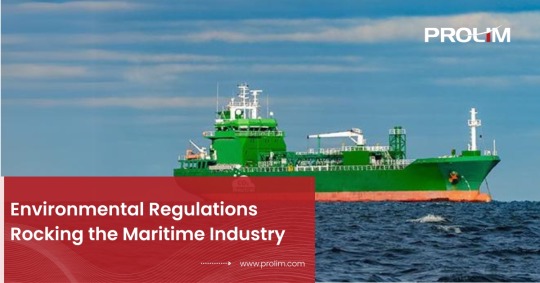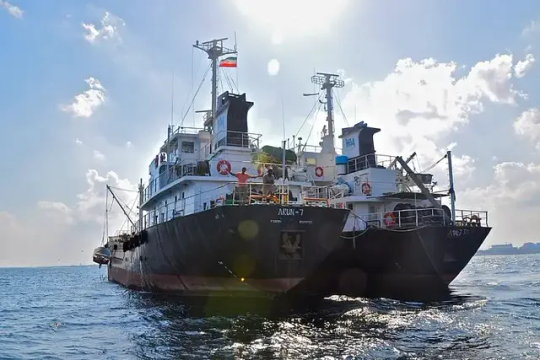#MEPC
Explore tagged Tumblr posts
Text
IMO interim guidance on the use of Biofuels in relation to CII

View On WordPress
0 notes
Text
UCL’s new study shows dual‑fuel ammonia ships offer the lowest carbon abatement cost over a vessel’s lifetime, outpacing methanol, LNG and e‑ammonia.

View On WordPress
#Ammonia-powered ships#best fuel for IMO compliance#container shipping#dual-fuel ammonia ships#IMO carbon emission compliance#IMO MEPC 83 carbon rules#Logistics#low-carbon marine fuels#maritime carbon compliance#ocean shipping#Ship emissions reduction technology#Shipping#shipping decarbonization strategies#technology#UCL shipping emissions study
0 notes
Text
NOTICIAS DE HOY 03 DE JULIO 2023 -TITULARES-
Sector Marítimo, Portuario y Logístico Nacional e Internacional. #INTERNACIONALES Cuba recibe Convención sobre Medio Ambiente y Desarrollo de los G77. Más en: Telesur Las compañías de petróleo y gas han intensificado la búsqueda de nuevos yacimientos en una apuesta a largo plazo por la demanda. Más en: gcaptain la reunión MEPC 80 de la Organización Marítima Internacional comenzó el lunes…

View On WordPress
#acceso a internet#Arabia Saudita y Rusia#Contecon Guayaquil#frontera colombo-venezolana#Lago de Maracaibo#Medio Ambiente y Desarrollo de los G77.#MEPC 80#Pdvsa en Monagas.#Petróleo
0 notes
Text
Landmark IMO deal set to shake up shipping
A decisive moment for global shipping regulation unfolded last week as the International Maritime Organization’s (IMO) Marine Environment Protection Committee (MEPC) concluded its 83rd session, which culminated in the approval of draft amendments establishing the ‘IMO Net-Zero Framework’. This global mechanism will combine mandatory greenhouse gas (GHG) limits with carbon pricing for the maritime sector and represents a move towards achieving the goals laid out in the IMO’s 2023 GHG Strategy, which targets net zero emissions from international shipping by or around 2050, supported by interim reduction goals for 2030 and 2040. Hailed by the IMO as a world-first for any industry sector, the measures are set to apply to large vessels over 5,000 gross tonnage – the segment responsible for about 85% of shipping’s CO2 emissions.

IMO secretary-general Arsenio Dominguez was in a celebratory mood at the end of proceedings: “The approval of draft amendments to MARPOL Annex VI mandating the IMO net-zero framework represents another significant step in our collective efforts to combat climate change, to modernize shipping and demonstrates that IMO delivers on its commitments.” Framework mechanics The Net-Zero Framework, to be integrated into MARPOL Annex VI, Chapter 5, is built upon two key pillars: a global fuel standard and an economic measure. MARPOL Annex VI, with its wide ratification covering 97% of global tonnage, provides the existing legal foundation. The Global Fuel Standard requires ships to progressively decrease their annual greenhouse gas fuel intensity (GFI). Calculated on a well-to-wake basis, the GFI measures GHG emissions per unit of energy used. Ships must meet increasingly stringent GFI reduction targets over time, driving the adoption of lower-emission fuels and technologies.
Complementing this is the Global Economic Measure, introducing a GHG emissions pricing mechanism. Vessels exceeding the permitted GFI levels will need to acquire “remedial units” to cover their emissions deficit. Conversely, high-performing ships using zero or near-zero (ZNZ) GHG technologies, achieving emissions below a tighter ‘Compliance Target’, can earn financial rewards and tradable “surplus units”. Compliance incorporates flexibility. Ships can meet their obligations by acquiring surplus units from others, using previously banked units, or purchasing remedial units via contributions to a new central fund. A cornerstone of the economic measure is the establishment of the IMO Net-Zero Fund. This fund will pool the contributions generated by the emissions pricing.
Get More Info : Cruise Ship Jobs
Website : https://seajob.net/
Contact Us : Crewing Assistance
#Dredger Jobs#Marine Jobs#Cruise Ship Jobs#Best Sea Jobs#Shore Jobs In Shipping#All Types Of Marine Crew
0 notes
Text
What are the Latest Current Affairs of India?

Staying informed about the latest current affairs of India is essential for students, professionals, and anyone interested in the country’s rapid developments. From political changes to economic reforms and international diplomacy, India has witnessed a series of significant events recently. Here's a brief overview of some of the most important current affairs shaping the nation right now.
1. 150th Inter-Parliamentary Union (IPU) Assembly
The Lok Sabha speaker Om Birla led Indian delegation participated in the 150th IPU Assembly held in Tashkent, Uzbekistan. The global parliamentary community adopted the Tashkent Declaration on Parliamentary action for social development and justice, emphasizing the need for renewed efforts on social development to address ongoing and emerging challenges.
2. First Global Carbon Tax on Shipping
India and 62 other countries voted in favour of imposing the world’s first-ever global carbon tax on the shipping industry.
The decision was taken at the London headquarters of the International Maritime Organisation (IMO).
It approved a global fuel standard and greenhouse gas pricing mechanism, so as to reduce climate impacts from shipping and promote cleaner technologies.
The negotiations were led by the IMO’s Marine Environment Protection Committee (MEPC).
The shipping industry accounts for 3% of global emissions and is not covered under the Paris Agreement, making the levy a significant development.
3. World Bank’s State of Social Protection Report 2025
According to the recent World Bank’s State of Social Protection Report 2025, nearly two billion people lacked adequate social protection as of 2022. These findings signal a crisis of inequality, as a significant portion of the global population continues to live without basic safeguards against poverty, climate change, economic shocks, and conflict. The report warned that such slow progress would impact the United Nations-mandated Sustainable Development Goals (SDGs).
4. Arctic Wildfires
As wildfires become more common and more intense, they are disrupting the Earth’s carbon balance. According to the study, as wildfires become more common and intense, they burn through the natural carbon reservoirs that have historically helped regulate the Earth’s climate. Multiple states in the United States were recently affected by tornadoes, wildfires, and dust storms. According to the Copernicus Air Monitoring Service (CAMS) of the European Union, wildfires released 800,000 tonnes of carbon in January 2025.
5. IIT-BHU won the National Award for forensic age estimation tech
The research team from the School of Biochemical Engineering, Indian Institute of Technology (BHU), Varanasi, won top honours at the Forensic Hackathon 2025. The Forensic Hackathon was part of the All-India Forensic Science Summit, organised by the National Forensic Sciences University (NFSU), under the Union Ministry of Home Affairs. The award was presented by the Home Minister at Vigyan Bhawan, New Delhi.
Originally published at http://kgsupsc.wordpress.com on April 17, 2025.
0 notes
Text
Portugal Lidera Acordo Histórico Para Redução Da Poluição Do Ar Por Navios No Atlântico Nordeste
News https://portal.esgagenda.com/portugal-lidera-acordo-historico-para-reducao-da-poluicao-do-ar-por-navios-no-atlantico-nordeste/
Portugal Lidera Acordo Histórico Para Redução Da Poluição Do Ar Por Navios No Atlântico Nordeste

PUB


Nova Área de Emissões Controladas aprovada na Organização Marítima Internacional terá impacto direto na saúde pública, ambiente e qualidade do ar em Portugal e Europa
Amanhã, 12 de abril, é o Dia Nacional do Ar e há boas razões para comemorar – No Dia Nacional do Ar, Portugal celebra uma conquista ambiental histórica: a aprovação, pela Organização Marítima Internacional (IMO), da criação de uma Área de Emissões Controladas (ECA) no Oceano Atlântico Nordeste. A decisão foi tomada na 83ª sessão do Comité de Proteção do Meio Marinho (MEPC), a decorrer em Londres, e representa uma vitória para a qualidade do ar e a saúde pública em toda a região costeira europeia.
A proposta, liderada por Portugal e apoiada pela União Europeia, abrange águas atlânticas adjacentes de oito países – incluindo Portugal, Espanha, França, Reino Unido, Irlanda, Ilhas Faroé, Islândia e Dinamarca (Gronelândia). Esta nova ECA obrigará os navios a utilizar combustíveis com teor de enxofre significativamente inferior (0,1% face aos atuais 0,5%) e tecnologias de redução de emissões de óxidos de azoto e partículas finas.
Benefícios concretos para o ambiente e a saúde pública
Estima-se que esta medida possa reduzir em 82% as emissões de óxidos de enxofre (SOx), em 64% as partículas finas (PM2.5) – associadas a doenças respiratórias – e em 36% o carbono negro, um poluente com forte impacto no aquecimento global. A redução esperada de óxidos de azoto (NOx) até 2050 também será significativa.
Os benefícios vão muito além dos números. Esta nova ECA protegerá aproximadamente 193 milhões de pessoas, incluindo milhares que vivem em zonas costeiras portuguesas. Estima-se ainda que, entre 2030 e 2050, entre 2.900 a 4.300 mortes prematuras poderão ser evitadas, com poupanças nos sistemas de saúde que podem atingir os 29 mil milhões de euros.
A proteção estende-se também ao património natural e cultural, com 148 locais UNESCO, mais de 1.500 áreas marinhas protegidas e 17 habitats de mamíferos marinhos incluídos na nova área.
Mais de 50 mil navios por ano cruzam a costa portuguesa
Segundo a associação ambientalista ZERO, que participou no processo como membro da Clean Shipping Coalition, mais de 50 mil navios por ano passam pela Zona Económica Exclusiva de Portugal Continental, sendo uma fonte significativa de poluição atmosférica, especialmente transportada por ventos de noroeste para o interior do território ibérico.
“É uma vitória da sociedade civil e da ciência, em colaboração com a administração pública”, destaca a ZERO, que desde 2020 vem defendendo ativamente esta medida, com apoio da NABU (Alemanha) e da Fundação Oceano Azul.
O processo contou com a liderança da Direção-Geral de Recursos Naturais, Segurança e Serviços Marítimos (DGRM) e a colaboração da Faculdade de Engenharia da Universidade do Porto e do International Council on Clean Transportation (ICCT). A proposta foi formalmente apresentada pela Secretária de Estado do Mar, Lídia Bulcão.
ECA entra em vigor em março de 2027
A decisão será formalmente ratificada numa reunião extraordinária da IMO em outubro de 2025, com entrada em vigor prevista para março de 2027.
Entretanto, a ZERO continuará a trabalhar para a expansão da área ECA às Regiões Autónomas dos Açores e Madeira, bem como às Ilhas Canárias, referindo que 94% do tráfego marítimo que atravessa essas zonas já se dirige a áreas com normas ambientais semelhantes.
Dia Nacional do Ar com mais motivos para celebrar – mas ainda há desafios
Criado em 2019, o Dia Nacional do Ar tem como objetivo sensibilizar a população para a importância da qualidade do ar. O tema deste ano, “Melhor Ar, Melhor Saúde”, alinha-se com a decisão agora tomada na IMO, que representa um passo decisivo na mitigação dos efeitos da poluição marítima.
Contudo, a ZERO alerta que ainda há muito a fazer em terra. Um exemplo é Lisboa, onde a Zona de Emissões Reduzidas na Baixa não é atualizada há mais de 10 anos, continuando a permitir a circulação de veículos com mais de 25 anos, e onde os limites legais de dióxido de azoto continuam a ser ultrapassados.
Fonte: Zero.ong
PUB


0 notes
Text
By Ron Unz
The Unz Review
December 10, 2024
Although his public service career stretches back for nearly sixty years and he probably ranks as one of our most distinguished professional diplomats, until the last year or so I was only dimly aware of Charles W. “Chas” Freeman, Jr.
I had occasionally read some of his opinion columns and perhaps one or two of his articles, and those always seemed to provide good and sensible points about the foreign policy issues that he addressed. Every now and then I’d seen him quoted in news stories, usually regarding either the Middle East or China, and his brief remarks were cogent ones. Articles on the latter topic sometimes mentioned the striking detail that very early in his long career he had served as the personal interpreter for President Richard Nixon during the latter’s historic 1972 trip to China and his meetings with Mao. But aside from that, my awareness of Freeman’s history or his activities was fairly low.
There was one notable exception to this. At the beginning of the first Obama Administration in February 2009, Freeman had been selected to serve as chair of our National Intelligence Council, tasked with assessing and assimilating reports from our 17 different intelligence agencies, then presenting the unified conclusions to the Director of National Intelligence and through him to the president. But although Freeman was eminently suited for that crucial American position, many members of the Israel Lobby regarded him as insufficiently loyal to the foreign country that they themselves served. So they mounted a fierce and very vocal lobbying campaign that successfully blocked his appointment, and I remembered reading about that unfolding controversy in my newspapers at the time.
One fatal black mark against Freeman had been that in 1997 he had succeeded former Sen. George McGovern as president of the Middle East Policy Council (MEPC). Although that organization possessed barely a sliver of AIPAC’s power and influence, Freeman declared that MEPC “strives to ensure that a full range of U.S. interests and views are considered by policy makers,” a goal that the Israel Lobby obviously viewed with extreme disfavor.
1 note
·
View note
Text

The oceans do not need us but humans need the oceans to survive. London, UK
Ocean Rebellion demonstrators perform on the Albert Embankment, on the final day of the MEPC 82 meetings
Photograph: Victoria Jones/Rex/Shutterstock / Guardian
1 note
·
View note
Text
Pratt & Whitney Awarded $65.8 Million F100 Engine Maintenance Contract for Saudi Arabia’s F-15s
Pratt & Whitney, an RTX (NYSE: RTX) business, has been awarded an F100 engine contract for a material management program by Saudi Arabia’s Middle East Propulsion Company (MEPC), the prime contractor of the Saudi Ministry of Defense for F100 engine sustainment services. The maintenance contract, valued at $65.8 million, supplies spare parts and engine services in support of the Royal Saudi Air Force’s (RSAF) F-15 Eagles. Under this construct, Pratt & Whitney will be more strategically integrated with MEPC and RSAF, gaining streamlined insight into engine data and inventory management processes. Pratt & Whitney will provide forecasting, technical support and timely material delivery to enable stronger operational readiness, more efficient predictive maintenance, optimal module turn times and improved engine availability. Work on this contract began in January 2024 and will run through the second half of 2025.
Pratt & Whitney, an RTX (NYSE: RTX) business, has been awarded an F100 engine contract for a material management program by Saudi Arabia’s Middle East Propulsion Company (MEPC), the prime contractor of the Saudi Ministry of Defense for F100 engine sustainment services. The maintenance contract, valued at $65.8 million, supplies spare parts and engine services in support of the Royal Saudi Air…

View On WordPress
0 notes
Text
Pratt & Whitney supporta i motori F100 degli F-15 sauditi Pratt & Whitney, un’azienda di RTX, ha comunicato di essersi aggiudicata un contratto relativo il motore F100 per un programma di gestione dei materiali da parte della Middle East Propulsion Company (MEPC) dell’Arabia Saudita, la società prime contractor del Ministero della Difesa saudita per i servizi di supporto del predetto propulsore. Il contratto di manutenzione ha un valore di 65,8 milioni di dollari e prevede la fornitura da parte di Pratt & Whitney di parti di ricambio e di servizi associati ai motori a supporto degli F-15 Eagle in servizio con la Royal Saudi Air Force (RSAF). In forza del
#Forze_Aeree#Forze_Armate#Industria_della_Difesa#Pratt_Whitney#RTX#aeronautica_saudita#arabia_saudita#F_15SA#F100_PW_229#stati_uniti
0 notes
Text
Post-MEPC 82: adapting regulations to reality | Shipboard Jobs
The Marine Environment Protection Committee’s 82nd meeting (MEPC 82), held shortly after the implementation of the D-2 standard on 8 September 2024, marked a pivotal moment for ballast water management systems (BWMS).

A Riviera webinar, Post-MEPC 82 (October 2024) issues, hosted by Riviera on 14 October 2024, brought together experts from across the sector to discuss the MEPC 82 agenda and the evolving challenges facing the BWMS industry.
Panellists included Mouawad Consulting chief executive Jad Mouawad, EcoHarbor president Mark Riggio, Intertanko assistant manager environment Will Sturdy, and Global TestNet chair Guillaume Drillet.
Topics ranged from regulatory developments and compliance, to operational challenges in water quality, and the transition of BEMA.
Get More Info : Ship Jobs
Maritime Hiring
Marine Recruitment India
Sea Vessel Jobs
Marine Vacancies
Maritime Vacancies
Shipping Openings
1 note
·
View note
Text
Utilizing waste heat from natural gas engine and LNG cold energy to meet heat-electric-cold demands of carbon capture and storage for ship decarbonization: Design, optimization and 4E analysis
Feng, Y., Qu, J., Wu, Y., Zhu, Y., & Jing, H. (2024). “Utilizing waste heat from natural gas engine and LNG cold energy to meet heat-electric-cold demands of carbon capture and storage for ship decarbonization: Design, optimization and 4E analysis.” Journal of Cleaner Production, 446, 141359. https://doi.org/10.1016/j.jclepro.2024.141359 Abstract The MEPC 80 session has adopted the revised IMO…
View On WordPress
0 notes
Text

Concerned about the impact of maritime emissions? Learn how MEPC 80's decisions at IMO will shape a greener future by 2050. Discover how Prolim can assist the maritime industry in achieving carbon neutrality. To dive deeper, read our blog.
Read more: https://www.prolim.com/environmental-regulations-rocking-the-maritime-industry/
To explore more about Simcenter Products: https://www.prolim.com/plm/simcenter/
0 notes
Text
UK Adopts Ambulatory Reference for Maritime Compliance

Ambulatory Reference
In a move to align itself with international maritime standards, the United Kingdom has adopted significant amendments to its domestic legislation concerning damage stability in cargo ships, load line protocol, and the prevention of pollution by noxious liquid substances carried in bulk. These changes will ensure that the UK remains in harmony with international merchant shipping requirements. A Step Towards Maritime Consistency The Secretary of State for Transport, in fulfilling its obligation to implement international amendments into UK domestic law, has announced these crucial changes. The strategy involves the use of ambulatory reference, allowing amendments to international obligations to be automatically integrated into UK domestic law, and keeping the nation compliant with international maritime standards.
A Closer Look at the Amendments
This statement outlines three sets of amendments that will come into force in the UK via ambulatory reference provisions in the relevant domestic regulations. Amendment 1: Damage Stability in Cargo Ships The first amendment pertains to damage stability in cargo ships, specifically focusing on requirements for watertight doors. The International Maritime Organization (IMO) noticed inconsistencies in provisions for watertight doors in mandatory cargo ship construction requirements. As a result, they have made amendments to relevant international instruments to align with these requirements. Importantly, this amendment does not introduce new requirements but rather harmonizes existing ones. To achieve this, Annex I of the International Convention for the Prevention of Pollution from Ships, 1973 (MARPOL) is amended to better align requirements for watertight doors on oil tankers with those of SOLAS. The International Maritime Organization's Resolution MEPC.343(78) instigates this change, and it will be effective in the UK on 1st January 2024 through the ambulatory reference provision in the Merchant Shipping (Prevention of Oil Pollution) Regulations 2019. Resolutions MEPC.345(78) and MSC.526(106) further amend the International Code for the Construction and Equipment of Ships Carrying Dangerous Chemicals in Bulk (IBC Code) to align requirements for watertight doors on chemical tankers with SOLAS standards. This amendment, as made mandatory by MARPOL, will take effect in the UK on 1st July 2024, following the ambulatory reference provision in the Merchant Shipping (Prevention of Pollution by Noxious Liquid Substances in Bulk) Regulations 2018. The implementation as made mandatory by SOLAS will follow suit on 1st July 2024 upon the introduction of new regulations (the draft Merchant Shipping (Carriage of Dangerous Goods and Harmful Substances) Regulations 2024). Resolution MSC.492(104) introduces amendments to the International Code for the Construction and Equipment of Ships Carrying Liquefied Gases in Bulk (IGC Code) to bring watertight door requirements on gas carriers in line with SOLAS standards. This change will become effective on 1st January 2024 and will be implemented alongside new regulations (the draft Merchant Shipping (Carriage of Dangerous Goods and Harmful Substances) Regulations 2024), making compliance with the IGC Code ambulatory. Amendment 2: Editorial Correction in Load Line Protocol The second amendment, also sanctioned by Resolution MSC.491(104), is a minor editorial correction. It pertains to regulation 22(1)(g) of Chapter III of Annex I of the 1988 Load Line Protocol. The amendment removes an erroneous reference to 'inlets' in a table outlining acceptable arrangements for scuppers and discharges. This change will come into effect on 1st January 2024, via the ambulatory reference provision in the Merchant Shipping (International Load Line Convention) (Amendment) Regulations 2018. Amendment 3: Pollution Prevention in Bulk Liquid Substances Thirdly, an amendment to Annex II of MARPOL addresses the prevention of pollution by noxious liquid substances carried in bulk by sea. Resolution MEPC.344(78) modifies Appendix I of Annex II to update guidance used in the categorization of liquid chemicals. This amendment subdivides the rating for inhalation toxicity, making it more relevant for shipboard operations, deletes an outdated rating for seafood tainting, and reassigns the column to rate flammability flashpoint. Importantly, this does not change the current pollution categorization of noxious liquid substances nor impact substances already classified in the IBC Code. This amendment will be effective in the UK on 1st November 2023, facilitated through the ambulatory reference provision in the Merchant Shipping (Prevention of Pollution from Noxious Liquid Substances in Bulk) Regulations 2018.
Conclusion
These amendments represent a significant step for the UK in keeping pace with its international maritime obligations. The adoption of ambulatory reference provisions ensures that the country remains in alignment with global maritime standards, improving safety, sustainability, and efficiency in the maritime industry. Sources: THX News, Maritime and Coastguard Agency, Department for Transport, & Baroness Vere of Norbiton. Read the full article
#AmbulatoryReference#DamageStabilityinCargoShips#EditorialCorrectionLoadLine#InternationalMaritimeAmendments#LoadLineProtocolAmendments#MARPOLandSOLASAlignment#MerchantShippingRegulations#PollutionPreventionMARPOLAnnexII#UKShippingCompliance#WatertightDoorRequirements
0 notes
Text
Maritime compliance: List of amendments expected to enter into force in 2023 and in the coming years

View On WordPress
0 notes
Text

Kishki
Bred by Keaton Taylor
#bird#pigeon#unrecognized breed#<- they should be recognized soon though!! MEPC is petitioning for the breed to be recognized by the NPA#these guys are wonderful but also usually run $100+ for a pair and are still pretty rare in the US#i'm hoping to see some in person within the next year or two :) i'd like to get a read on their temperament
53 notes
·
View notes